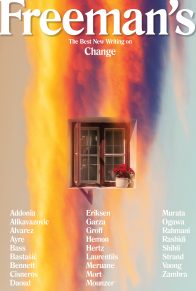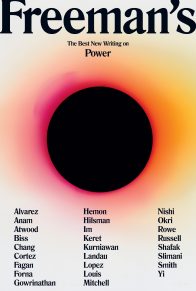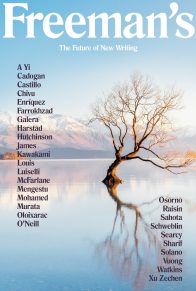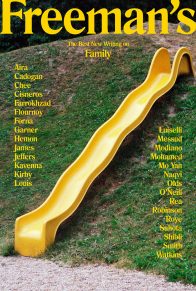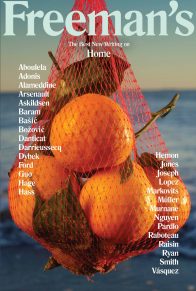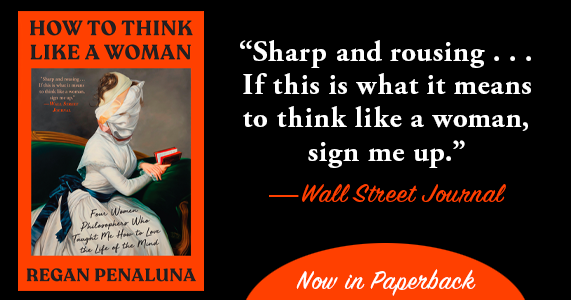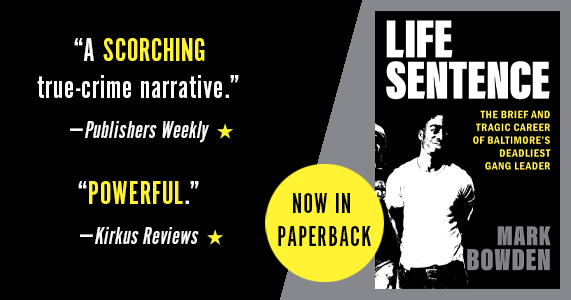“An illustrious new literary journal . . . The Freeman’s formula will be relatively familiar to Granta readers: fiction, nonfiction, and poetry by new voices and literary heavyweights—Haruki Murakami, Lydia Davis, Louise Erdrich—alike . . . Freeman doesn’t just include the work of unknown writers, he ‘smuggles’ them in among A-list talent. New voices—like that of the Sudanese-born writer Fatin Abbas, a portion of whose unpublished first novel appears in the issue—aren’t only important, they can ‘tell you things about existence that haven’t been put that way before.’” —Julia Felsenthal, Vogue.com
“Something new is headed our way in the fall—a new periodical/anthology shaped into form by John Freeman. Here he has assembled & edited a collection of terrific authors who responded to the subject he put forward; Arrival. What a hypnotic set of stories, really linked excursions that have an inexplicable but perfect rightness to their placement within the confines of the cover so that something builds from beginning to end. Open it at page one and just read. An amazing collection of gifted writers. Call it what you will it is simply in its entirety a very good book.” —Sheryl Cotleur, Copperfield’s Books
“It can safely be said that [John] Freeman is a guide whom a savvy subset of passionate readers trust. His plan for this new project is simple: Twice a year, he’ll present ‘a collection of writing grouped loosely around a theme.’ This first installment of poems, stories, and narrative nonfiction does not disappoint. There’s excellent work by literary luminaries and popular favorites—Lydia Davis and Haruki Murakami, Louise Erdrich and Dave Eggers—as well as work from writers who will be new to many. The geographic range represented here is impressive, with authors from such far-flung locales as Iceland, Sudan, and the West Bank. Freeman’s first theme is ‘arrival,’ and part of the pleasure of exploring this volume is discovering the various ways in which contributors interpret the concept . . . A diverse and diverting anthology for fans of short fiction, verse, and long-form essays.” —Kirkus Reviews
“A first-rate anthology of bold, searching and personal writing by emerging and established writers on the theme of arrival . . . If this first installment is anything to go by, it has all the hallmarks of a promising new project . . . [An] admirable collection . . . Prepare to be transported.” —Malcolm Forbes, Minneapolis Star-Tribune
“[Freeman] wants writers to be seen. He believes in the stories they tell . . . While the roster of writers included in the first issue is impressive—in addition to Mr. Keret, Ms. Carson, Mr. McCann and Mr. Hutchinson, you’ll also find the likes of Haruki Murakami and Dave Eggers—and the stories they tell in Freeman’s feel like hands reaching out from the ether to save the reader from everyday life, they connect . . . Freeman’s is very much like New York, a melting pot where folks can be themselves . . . The world has certainly arrived in the pages of Freeman’s.” —Sarah Dohrmann, New York Observer
“[An] infinitely relatable and beautifully crafted prose and poetry anthology . . . Freeman has assembled a thoughtful and profoundly accessible collection of work that connects our vulnerabilities, our expectations and our hopes.” —Newcity Lit
“A terrific anthology . . . Haruki Murakami, David Mitchell and a host of other lively writers let loose their imaginations in editor John Freeman’s first outing with a new literary journal that is sure to become a classic in years to come.” —San Francisco Chronicle
“Illuminating new work . . . Perfect reading for our ever-accelerating times.” —NPR’s Book Concierge, “Our Guide to 2015’s Great Reads”
“Freeman has great balance . . . . Every piece in this collection has the potential to make jaded readers happy . . . You need very little time to read each piece but they linger exactly as Freeman intended they should.” —Sydney Morning Herald
“The former editor of Granta has launched a biannual journal of his own, named for himself, because—why not? The first issue takes up the theme of arrival, with short nonfiction, fiction and poetry by Louise Erdrich, Haruki Murakami, Dave Eggers, Lydia Davis and Aleksandar Hemon, who contributes a funny and touching piece about his Bosnian immigrant parents making a home in Canada.” —Tom Beer, Newsday
“Laura van den Berg’s incredible story ‘The Dog’ has a snappy, fast-paced surface and a dark, glittering core . . . For my money, the best essay here is ‘Black and Blue’ by Garnette Cadogan . . . This essay deserves as much exposure as anything published on black life in America this year . . . Freeman’s is working in a weird, wild, many-tendrilled form.” —Saturday Paper (Australia)
“A perfect companion for travelers.” —Sacramento Bee
“Arrival is not a gimmick; it’s a heartbeat. Listening for its pulse from one page to the next encourages dual enjoyment, first with each individual piece, and then the pieces in conversation . . . Freeman’s often reads more like a curated anthology than a journal . . . From Bangladesh to the West Bank, Bosnia to Jamaica, Sudan to Iceland, the focus is refreshingly global. Reading Arrival feels like sitting in an airport cafe eavesdropping on the conversations of fellow travellers—journeys beginning and ending, lives intersecting and diverging; a group of people brought together by transit, but united through storytelling: that most human of impulses . . . This geographic breadth, and profound sense of borderlessness is what most distinguishes Freeman’s in the increasingly crowded marketplace of literary journals.” —Australian
“A diverse range of short stories, essays, poetry and photography that deal with that elusive moment of first contact, of what it means to arrive (or fail to arrive) at some literal, emotional, biological or metaphorical location. The result is a fascinating read . . . The ordering of material is carefully and artfully handled . . . If future editions of Freeman’s live up to the quality of Arrival, I am sorely tempted to become a subscriber.” —Otago Daily Times (New Zealand)
“Freeman’s: Arrival is best enjoyed by dipping into and choosing whichever piece appeals at the time . . . Absorbing.” —New Zealand Herald





